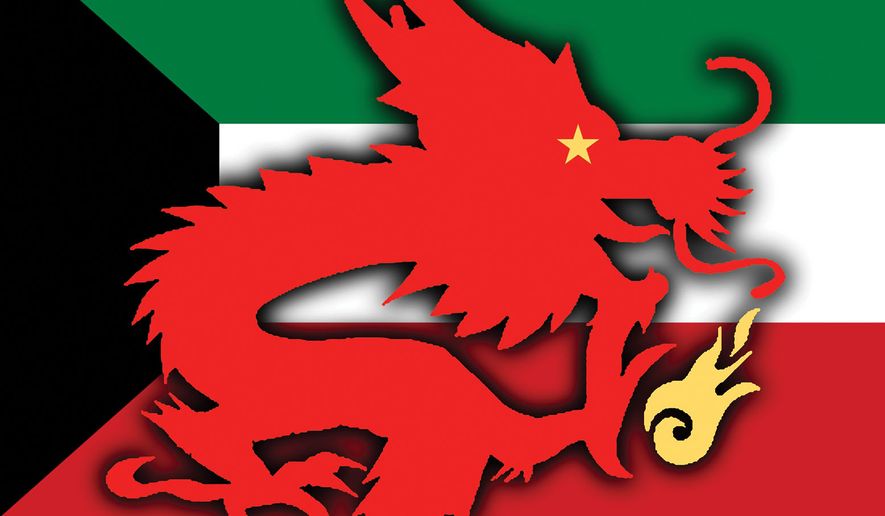A version of this story appeared in the daily Threat Status newsletter from The Washington Times. Click here to receive Threat Status delivered directly to your inbox each weekday.
OPINION:
Amer Ghalib, President Trump’s nominee for U.S. ambassador to Kuwait, is anticipated to testify this fall before the Senate Foreign Relations Committee. It will be a critical moment. This month, Kuwait inaugurated the “Kuwait-China Friendship Club,” pledged deeper military cooperation with Beijing and was preparing to open a Chinese-built ammunition plant. These moves signal that a country liberated and defended for decades by American forces is now edging into China’s orbit.
Compounding the problem is that Kuwait seems to be refusing to pay its bills to the United States, consistent with Beijing’s model of sidelining Western firms and privileging its own.
Before the August recess, Congress advanced the national security appropriations bill, which included report language directing the State Department to allocate bilateral assistance funds for “facilitating, as appropriate, the resolution” of commercial disputes with Kuwait. The report urges the secretary of state to deploy “the various tools of diplomatic engagement” to resolve these issues swiftly.
The examples are staggering. During the pandemic emergency, Kuwait amassed more than $650 million in unpaid medical expenses with U.S. health care providers. Ultimately, it took congressional intervention to force Kuwait to pay its debts. More recently, Kuwait, in violation of its own international agreements, attempted to raise medical service fees so that non-Kuwaitis would pay as much as 10 times the fees paid by Kuwaiti patients.
Just as concerning is the case of the $30 billion Al-Zour Refinery. Despite being the second largest in the Middle East by capacity, Kuwait has refused to pay its international partners, in America and elsewhere, that worked on the project.
It’s fair to view these disputes not as isolated lapses but rather as part of a larger tilt toward Beijing, reinforced by China’s growing stake in Kuwait’s energy sector. When Kuwait stiff-arms U.S. firms while embracing Chinese partnerships, it is choosing sides, whether it chooses to admit it or not.
Although Kuwait is one of America’s most critical security partners in the Middle East, the United States does the heavy lifting. More than 13,000 U.S. troops are stationed in Kuwait, with Camp Arifjan and Ali Al-Salem Air Base serving as vital hubs for operations across the Middle East. It is American power that deters Iranian aggression, keeps shipping lanes open and guarantees Kuwait’s survival in a dangerous region.
Although the U.S. shoulders these immense costs, Kuwait is deepening its ties with Beijing while not paying the U.S. its due, directly undermining America’s economic interests and its national security posture in the Persian Gulf.
This cannot continue. Washington must continue applying military and security diplomacy as well as commercial diplomacy to resolve these problems.
Protecting U.S. businesses abroad is not separate from countering China’s influence; it is one and the same.
If the United States does not act decisively, this pattern will continue. Allies and adversaries cannot be allowed to pocket the benefits of U.S. economic and security support while fleecing American companies and tightening their relations with America’s adversaries.
That’s why the Foreign Relations Committee should use the anticipated confirmation hearing to press the incoming ambassador on the urgency of Kuwait keeping the homeland protected from China and ensuring that American firms are paid what they are owed. He must work with Sheikh Sabah Khalid Al Sabah to secure concrete commitments for fair and timely resolutions.
Confronting Beijing’s creeping influence in Kuwait must be part and parcel of commercial diplomacy. It’s vital that it become a priority, and soon.
• Col. David Trotter is a retired commissioned officer of the U.S. Army with 35 years of active military service. He served in multiple combat tours, leadership roles and executive positions at all levels and in the Pentagon. His combat tours include Afghanistan, Iraq, Saudi Arabia and Kuwait.




Please read our comment policy before commenting.